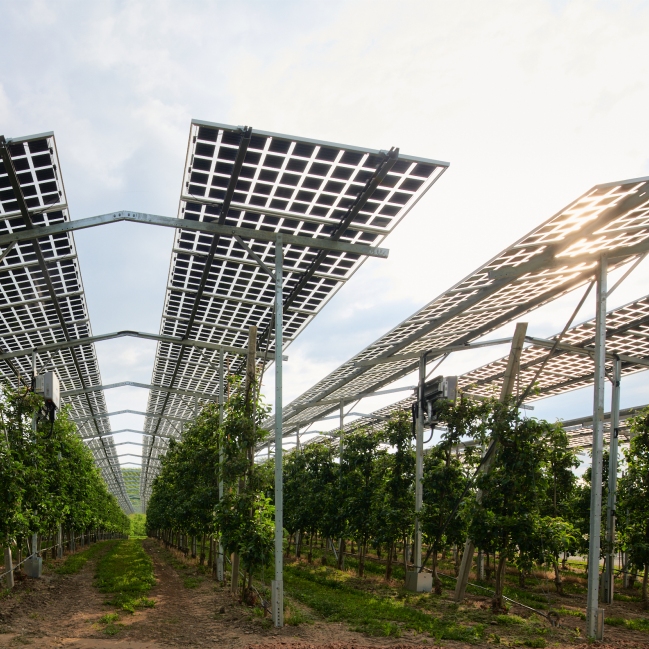News #10
Majority of Farmers View Agrivoltaics as Positive
A study by the University of Göttingen and the Fraunhofer Institute for Solar Energy Systems ISE showed that the majority of farmers in Germany are open to agrivoltaics, the dual use of land for agricultural production and solar energy generation, and can imagine installing the technology on their farms. The research team conducted an online survey and analyzed the responses from 214 farmers. The results showed that 72.4 percent could imagine using agrivoltaics on their farm. The main motivations given were the additional source of income from self-generated electricity and the future-oriented development that agrivoltaics offers to the farm.
Scientists from the University of Göttingen and Fraunhofer ISE conducted an online survey in February 2023 to analyze the willingness of the farmers to integrate agrivoltaics into their operations. Datasets from 214 farmers were evaluated to obtain a clearer picture of their attitudes as well as the perceived benefits and hurdles. The results have now been published in the journal Applied Energy.
"More than two thirds of the farmers surveyed appear to be convinced of the fundamental benefits of agrivoltaics," says Charlotte Bühner, PhD student at the University of Göttingen and one of the main authors of the study. A lack of confidence in the new technology is not a relevant hurdle, she says, as farmers believe that agrivoltaics can help them to future-proof their farms. "Even more than the positive synergies that can arise between the agrivoltaic system and the crops, farmers currently seem to focus on the additional source of income from the electricity," adds Johanna Wagner, who is also an author of the study and a scientist at Fraunhofer ISE until the end of 2023.
The respondents found the bureaucratic effort and the legal framework conditions, which were perceived as opaque, to be particularly problematic. There was also uncertainty about the extent to which agrivoltaic systems could make it more difficult to work the land. "In order to successfully implement agrivoltaics in the long term, we believe that the significant involvement of agricultural stakeholders is of central importance," says Dr. Max Trommsdorff, Head of the Agrivoltaics Group at Fraunhofer ISE. "Gaining a better understanding of the opportunities and risks from the perspective of agricultural businesses is therefore an important field of research for us."
Links and Downloads
Last modified:
